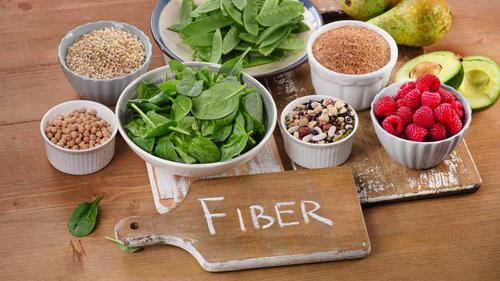How Much Cholesterol Per Day - Best Tips for You
Cholesterol is a lipid structural compound found in the human body. It has been seen as bad or an enemy to human health. But you need cholesterol in the production of steroids, vitamin D, bile acids, hormones, and making cell membrane. Why should you worry about how much cholesterol per day you should ingest? Increased intake of cholesterol through your diet increases the risk of cardiovascular disease. A high intake of meat, dairy products, and poultry products lead to high cholesterol build up. When its level rises, production of LDL ("bad”) cholesterol, which accumulates on blood vessel walls to form plaque, increases. This plaque results in the narrowing of blood vessels (arteries) thus interfering with blood flow. Apart from this disadvantage, you need high-density lipoprotein (HDL), also known as the good cholesterol, to help carry cholesterol from your bloodstream to the liver for excretion.
What Level of Cholesterol is Risky Health-wise?
Cholesterol consumption has been red-flagged for a long time. But from recent research and a new U.S dietary guideline report, some cholesterol level is accepted. The following guideline will help you learn which level of cholesterol is healthy.

1. How Much Cholesterol a Day
Do you worry about how much cholesterol in a day you should take? Below is a guideline.
- How much for normal people
For a normal and healthy person, the intake of a maximum of 300 milligrams per deciliter of cholesterol in a day is acceptable. You must limit the amount of cholesterol or calories you ingest. Such is done by watching the level of trans fats or saturated fats ingested. By so doing, you can avoid heart diseases.
- How much for people with heart disease
Cholesterol is linked to heart disease. By limiting cholesterol intake, you will be dealing with the real cause of heart disease. If you are suffering from any heart disease like blood pressure, you need to watch your cholesterol intake. You have to maintain 200 milligrams of cholesterol per deciliter or less. Such a level will reduce the risk of cardiovascular diseases.
2. How Much Cholesterol Is Too Much
Here is where keenness on how much cholesterol per day ingestion takes root. There are two types of cholesterol depending on the protein compound that transports it. For bad cholesterol, known as LDL, the level should not go above 100 mg/dl. But the level for the good cholesterol, HDL, should be 60 ml/dl and above. HDL helps in excretion of dangerous cholesterol that cause cardiovascular diseases. To sum it all, maintaining cholesterol level below 200 ml/dl is advisable and healthy.

Tips for Lowering Cholesterol Level
Your body has a natural way of balancing cholesterol level. But when you ingest a diet that contains high cholesterol, this balance is disrupted. LDL production increases at the expense of HDL. Thus, you need to follow the following guidelines as references to maintain a healthy cholesterol level.
- Limit intake of saturated fats, trans fats
You need to limit the intake of red meat, fatty flesh, poultry products (eggs), palm and coconut oil. On manufactured foodstuff, check for hydrogenated fat (trans fats) on the labels. These are the main sources of high cholesterol.
- Limit intake of caffeine and alcohol
Caffeine is a sweet stimulant but when you take more than two cups a day, you increase your cholesterol level. One glass of wine is believed to lower cholesterol levels, but more than a glass is risky. Additionally, heavy drinking causes liver inflammation and the production of more cholesterol.
- Eat more fiber-rich foods
Foodstuffs like oats, legumes (beans) and veggies (like carrots, eggplants, beets and okra), are sources of soluble fiber. Soluble fiber helps to lower cholesterol level through aiding in its excretion.
- Choose protein-rich plant foods
Protein-rich foods help avoid cholesterol build up in two ways. These plants are mostly legumes, so offer a perfect source of protein to help you avoid meat which is blamed for high cholesterol levels. As well, legumes help in lowering LDL levels.
- Lose weight
Still on the watch of how much cholesterol a day you should take; checking on body weight is key. When you exercise for weight loss, high levels of human growth hormone (HGH) is produced which boosts HDL production. Exercising also helps in burning excess calories.
In conclusion, it's difficult to totally avoid cholesterol. The only way to live a healthy life without any risk attached to cholesterol is by controlling your diet and living a healthy lifestyle. The above information is just a reference guideline but if followed carefully, you can lower your cholesterol level for better health. Finally, remember to always ask your doctors for advice.
YOU MAY LIKE
-
How to Stop Heart Palpitation
-
Top Symptoms and Tips for High Blood Pressure
-
Best Remedies to Reduce Cholesterol Naturally
-
Easily Available Foods That Reduce High Blood Pressure
-
Can Blood Pressure Indicate a Heart Attack?
-
How Much Blood Does an Average Human Body Have?
-
If Your ESR Level Is Very High Then What Will Happen - Best Tips for You
-
3 Kinds of Foods to Avoid With Diabetes
-
High Blood Sugar Can Make You Feel Bad and This Is Why?
-
Ways to Battle the Effects of High Blood Pressure
